Вывели более 160 млн грн через схему с участием государственного «Укргазбанка» и компании «Киевгорстрой-1». Давняя история с участием бывшего банкира-регионала Омельяненко во время войны набрала новые обороты: спор за комплекс зданий и сооружений продолжается в юридической плоскости. Судьбу уже трех участков на столичной Оболони, на которые, вероятно, претендует фирма из окружения бывших «киевгорстроевцев», должен решить суд.
Действительно ли к сомнительной схеме «отжима» оболонских земель в Киеве причастны люди одиозного экс-банкира Алексея Омельяненко? И при чем здесь «российский след»? Детали – в расследовании журналиста СтопКора Игоря Доценко.
Территория, за которую судятся заинтересованные стороны, немалая: производственный комплекс площадью 8600 квадратных метров в Оболонском районе столицы. Юридический спор продолжается по сей день.
Но свое начало эта запутанная история берёт еще с эпохи каденции Януковича.
В те давние времена г-н Омельяненко возглавлял провластную фракцию Партии регионов в Киевском горсовете и входил в наблюдательный совет «Укргазбанка». Кроме того, банкир занимался благотворительностью – правда, поддерживал в основном церкви Московского патриархата.
Впрочем, журналисты предполагают, что Омельяненко щедро спонсировал «русское православие» за государственные средства. Как выяснили правоохранители, в течение 2008-2010 годов деятель по предварительному сговору с руководителем одной из дирекций «Укргазбанка» организовал схему вывода бюджетных средств.
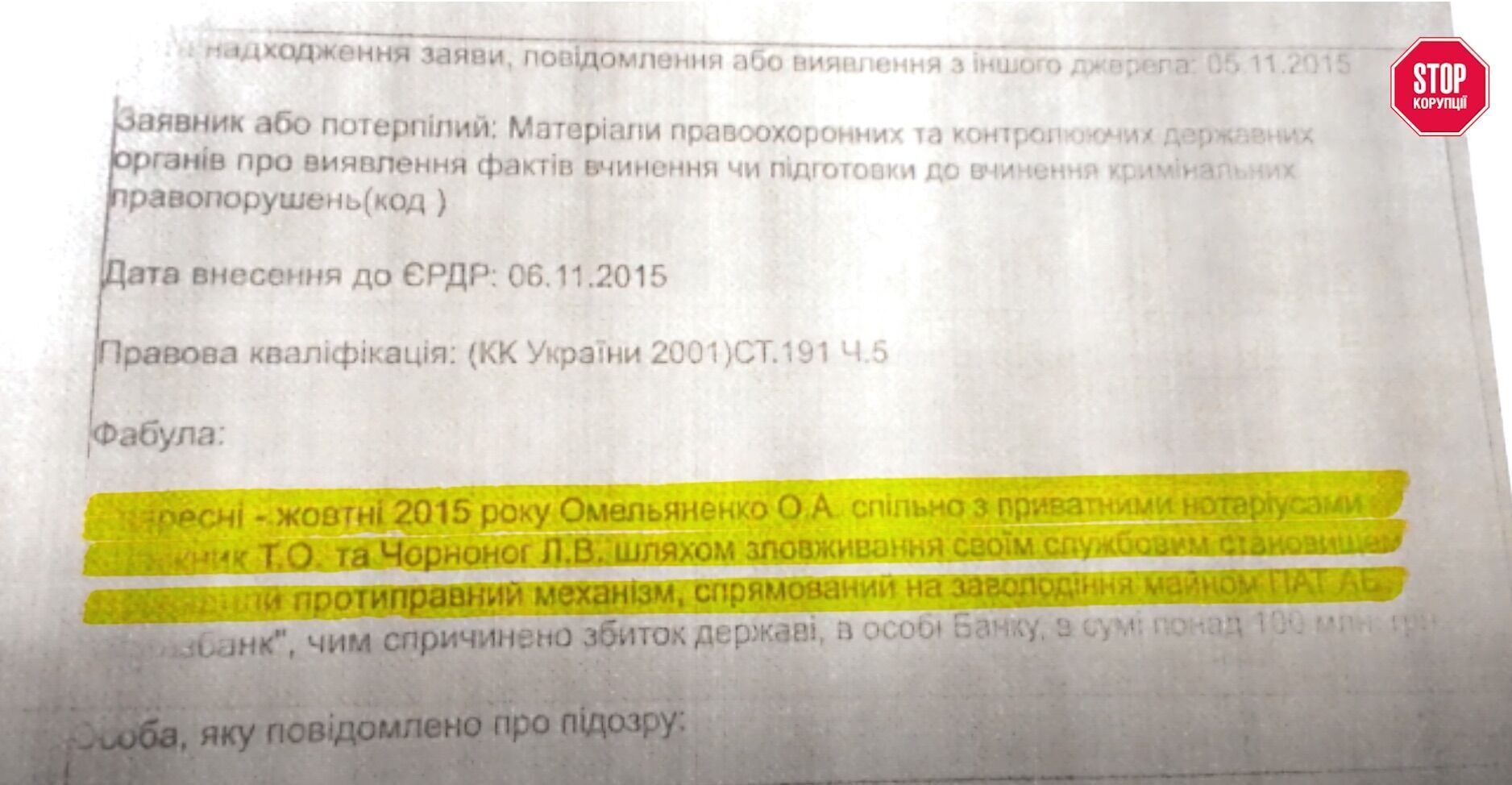
По данным следствия, средства поступали в качестве кредитов на счета принадлежащих самому Алексею фиктивных предприятий. Далее деньги выводились из этих карманных структур в оффшоры. При этом кредиты банку никто не возвращал.
Но были и другие схемы. Об одной из них рассказали в Департаменте защиты экономики Нацполиции: «Путем перечисления средств за аренду помещений, которыми фактически банк не пользовался, и проведение в них ремонта на счета заранее созданного подконтрольного предприятия было перечислено 39 млн гривен», – говорится в сообщении.
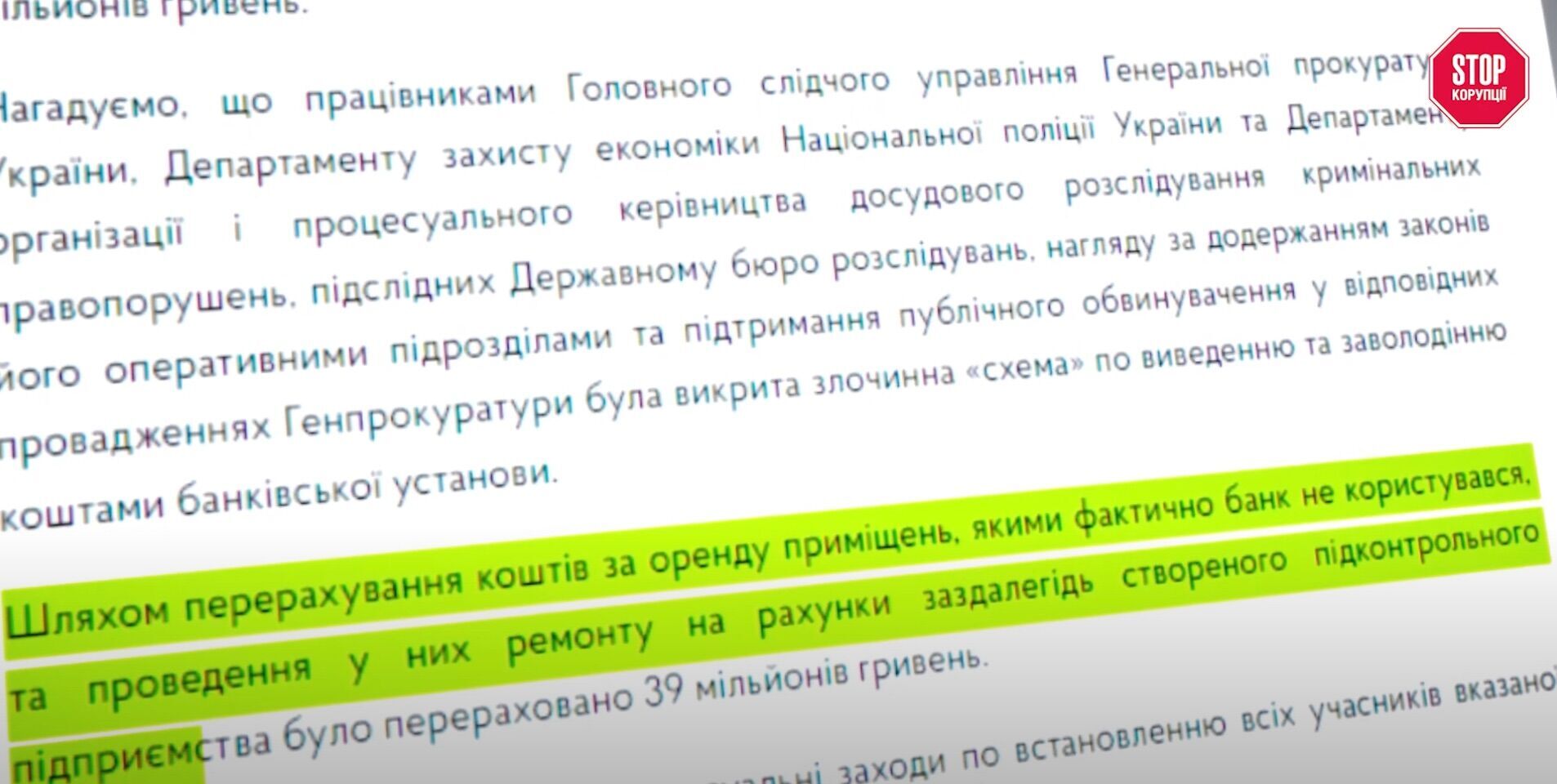
А что известно о деле, непосредственно касающемся спорных оболонских земель?
Так, в начале октября 2008 года «Укргазбанк» выдал кредит «Киевгорстрою-1» на сумму 164 млн грн. А трест в свою очередь передал в обеспечение под этот кредит нежилые помещения по ул. Лебединская, 6.
Поскольку ссуду не вернули, производственный комплекс по решению суда взыскали за долг. В конце концов, владельцем комплекса зданий и сооружений стал «Укргазбанк», который выставил его на публичные торги.
И в 2021 году фирма «Лебединский консалт» приобрела вышеупомянутое имущество – в системе OpenMarket аукцион указан как состоявшийся. Но впоследствии компания, как новый владелец объекта, узнает, что кроме нее на право собственности на комплекс претендует некая компания «Эпика-2017».
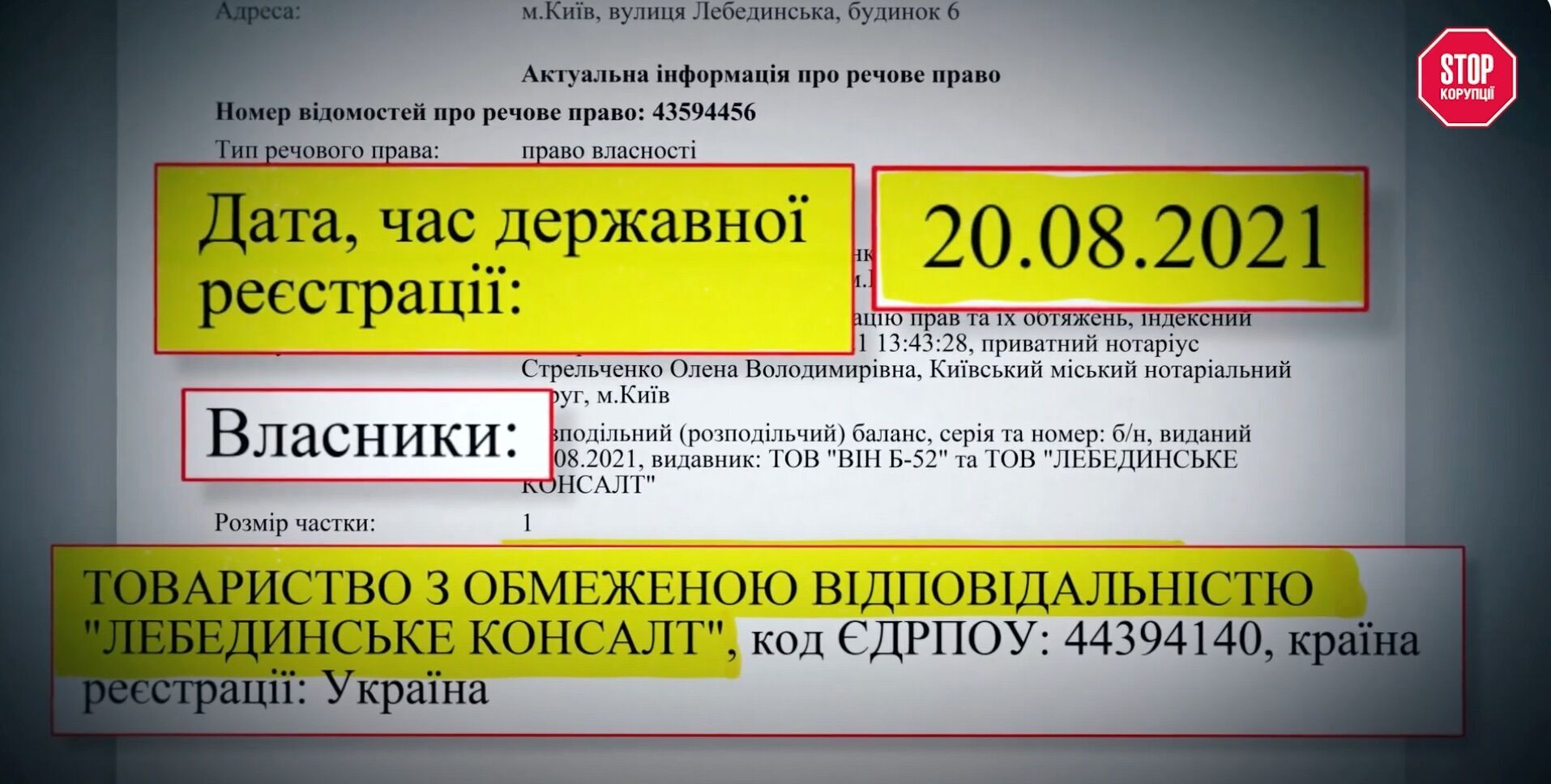
Общество было создано в марте 2017 года. И уже через месяц компания покупает долю комплекса фактически за бесценок – всего 100 тысяч гривен. При этом уставный капитал этой фирмы еще меньше – одна тысяча гривен.
Как такое могло произойти?
Как отмечает журналист Игорь Доценко, в 2017 году с недвижимостью и землей на Оболони начинают происходить странные манипуляции. И это при том, что земельный участок по этому адресу – коммунальный, то есть фактически принадлежит территориальной громаде города Киева в лице столичного городского совета.
Как свидетельствуют данные Госреестра прав, частный нотариус Олег Бойко в апреле 2017 года принимает решение о государственной регистрации прав и обременений, по которому фирма «Эпика-2017» регистрирует право частной собственности на комплекс зданий и сооружений по адресу: ул. Лебединская, 6. Заметим: не на весь участок, а только на его часть. Основанием же этих действий указана справка из БТИ, где отмечается, что имущество зарегистрировано за частным предприятием «Ф.Ф.-Сервис» еще якобы в далеком 1998 году.
Следует добавить, что представители Киевгорсовета уверяют: право собственности на указанный объект недвижимого имущества по ЧП «Ф.Ф.-Сервис» на основании договора купли-продажи 1998 года не регистрировалось. По указанному регистровому номеру по нежилому фонду была проведена регистрация на объекты недвижимого имущества по другому адресу.
А согласно данным реестровых книг КП «Киевское городское бюро технической инвентаризации», по адресу в г. Киеве ул. Лебединская, 6 по нежилому фонду была произведена регистрация права собственности на производственный комплекс за другим юридическим лицом.
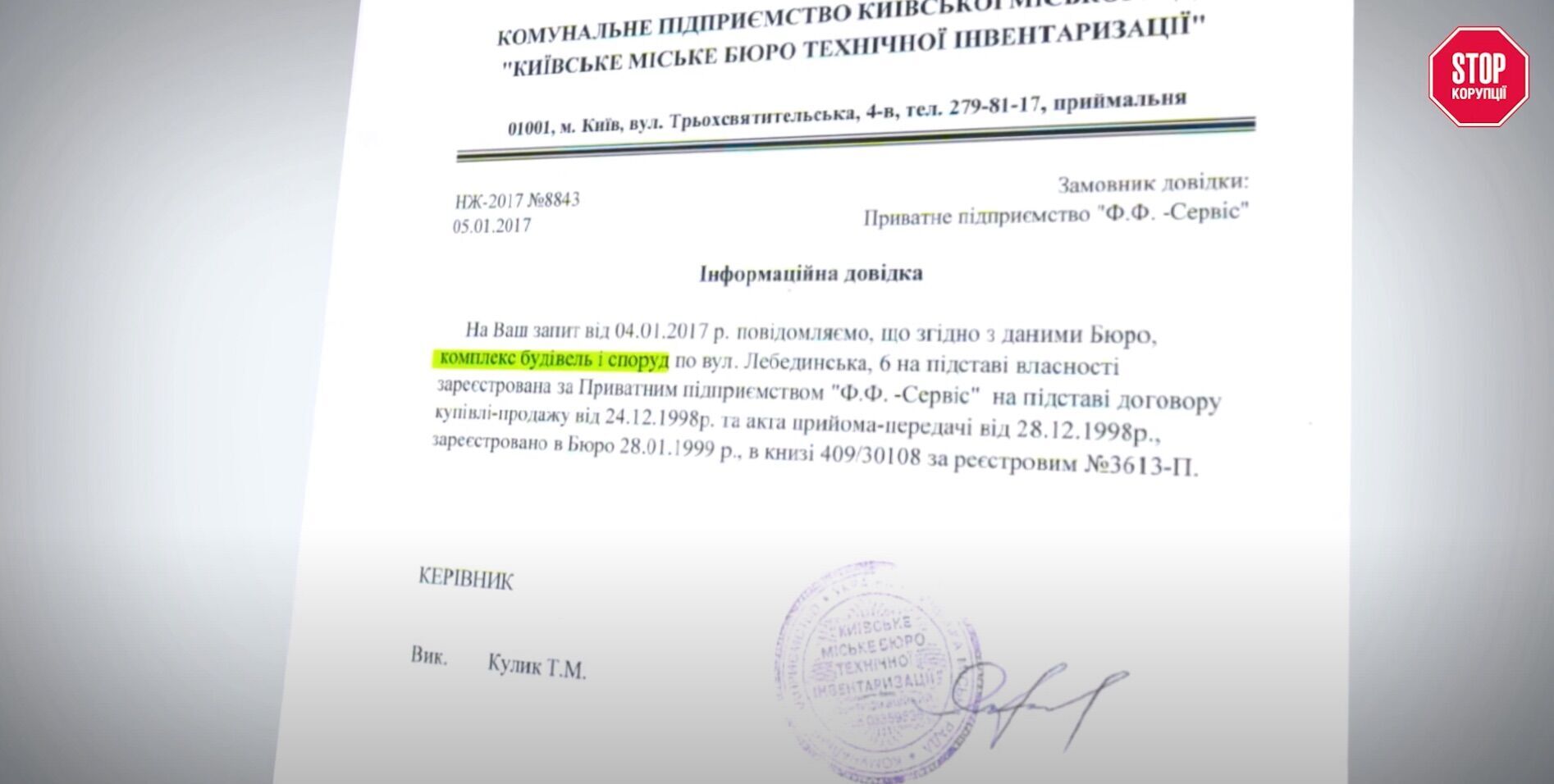
Свидетельствует ли это о фиктивности договора?
Ситуацию для СтопКора прокомментировал эксперт – юрист Эдуард Дьяченко.
«Если нет данных в БТИ… у нас электронные реестры начали функционировать с 2014 года, и сейчас не все сведения из БТИ перенесены в государственные реестры. Поэтому, если в реестре нет сведений о владельце, то они должны быть в БТИ, потому что этот договор должен был регистрироваться где-то на тот момент. Если это еще были 1990-2000 годы, то именно в БТИ», – объясняет он.
Зачем адвокат «Эпики» ссылается на недействительный договор другой компании? Журналисты обратились к руководителю компании Степану Украинцу. Он пообещал предоставить комментарий позже, но в день запланированной встречи перестал отвечать на сообщения. А когда ему позвонили – дату разговора снова перенес.
«Но вместо ответов – снова игнор. Удивительное поведение для человека, который уверен в законности своих действий. Создается такое впечатление, что руководителю компании, которую обвиняют в подделке документов, действительно есть что скрывать», – резюмирует Игорь Доценко.
А что с законностью раздела земель?
Удивительным образом, один земельный участок превратился в отдельные три. По словам юриста, можно предположить массу вариантов, для чего это было сделано. Может для того, чтобы земельный участок, который имел единый кадастровый номер, перестал существовать, а может и для того, чтобы дешевле его перепродать.
«Вы можете их на 10, на 100 частей поделить, если вы являетесь собственником. Если, конечно, вы не являетесь собственником, то здесь уже будет вопрос к государственному регистратору. А как вы поделили этот земельный участок, если лицо не является собственником?» – подчеркивает Эдуард Дяченко.
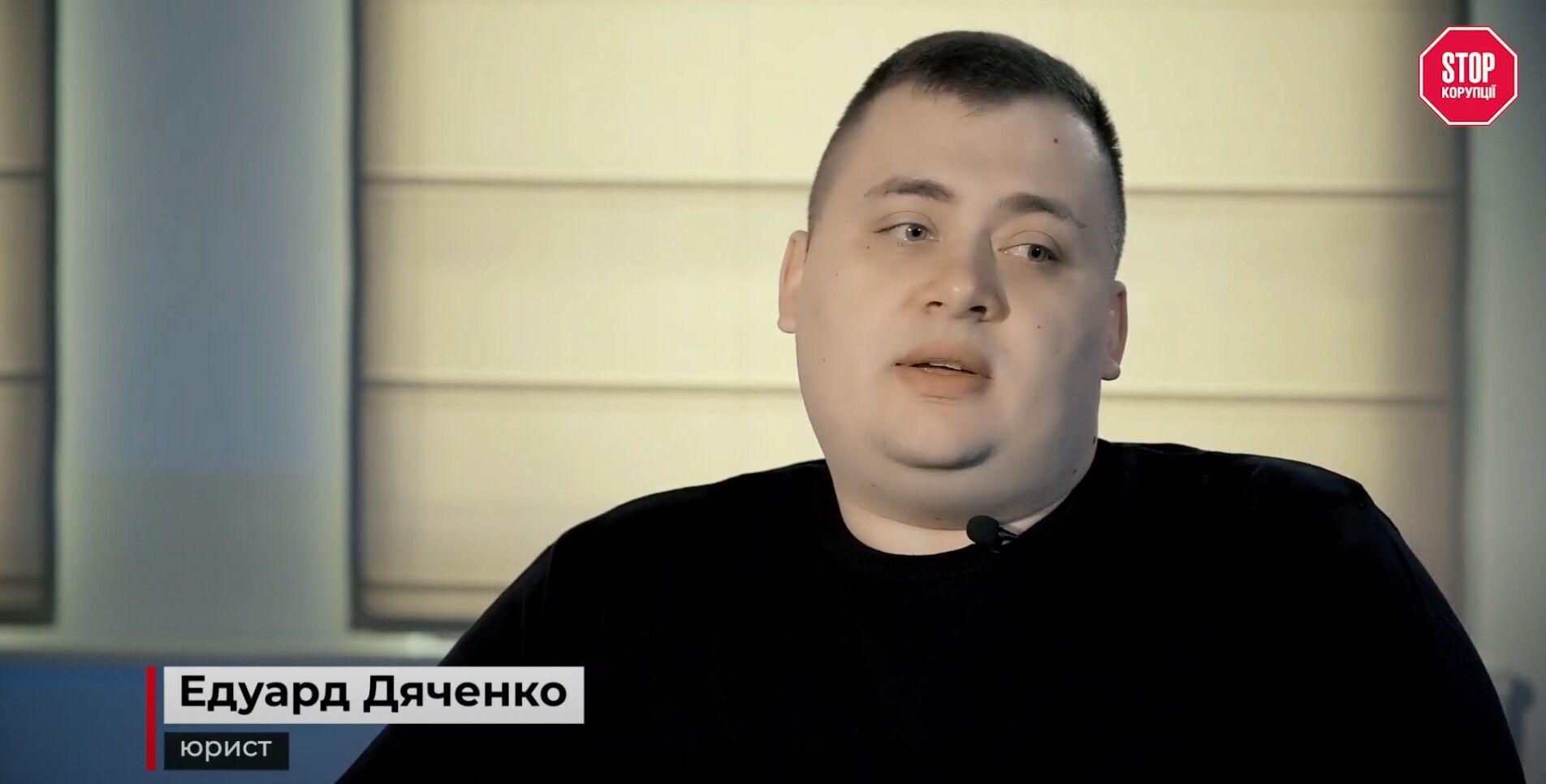
Однако указанные сомнительные действия совершались не только нотариально, но и физически. Репортеры зафиксировали на видео, как неизвестные выбивают ворота, а затем захватывают земельный участок путем предположительно незаконного размещения на площадке строительных вагончиков и стройматериалов.
Но, несмотря на все приведенные выше факты и доказательства, «Лебединский консалт» уже дважды проигрывал суд.
Не обошлось ли без влиятельных связей г-на Омельяненко, умеющего выходить «сухим из воды»?
Ведь дело, в котором он подозревался в сговоре с целью выведения сотен миллионов государственных гривен из «Укргазбанка», похоже, не закончилось ничем.
Сначала банкира заключили под стражу на два месяца с залогом в 90 млн гривен. Но странным образом за несколько месяцев размер залога уменьшился в 30 раз. А потом Омельяненко вообще отпустили «под личное обязательство», без уплаты ни копейки залога. При этом на него даже не надевали электронный браслет, а паспорт не изъяли на хранение.
СМИ предполагают, что за скорое освобождение Омельяненко может благодарить друзей-священников из Московского патриархата. Не случайно именно на территории одного из монастырей экс-регионал основал общественную организацию пророссийского характера.
Но в этой истории точку ставить еще рано.
Как стало известно редакции «СтопКора», Киевский городской совет обратился в столичный Хозяйственный суд с иском к частному предприятию «Ф.Ф.-Сервис» и «Эпика-2017» о признании недействительным договора. Так что продолжаем следить за дальнейшим ходом дела.
Напомним, нардеп Павел Халимон в разгар войны приобрел роскошный дом на 500 квадратов у бывшего секретаря покойного деятеля Московского патриархата Владимира Сабодана. А его соседом и частым гостем оказался «православный банкир» Алексей Омельяненко, который в свое время чудом избежал ответственности за присвоение сотен миллионов бюджетных гривен.


